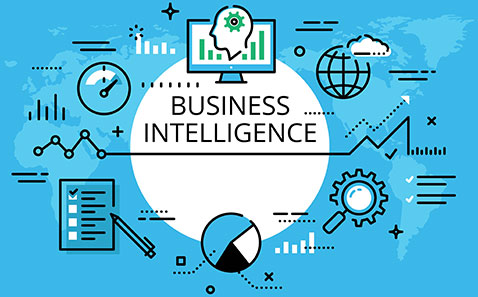Description
Big Data Analytics refers to the complex process of examining large and varied datasets—often big data—to uncover hidden patterns, correlations, and insights that can inform business decisions. This field encompasses a range of technologies, tools, and methodologies designed to process and analyze vast volumes of structured and unstructured data generated from various sources, such as social media, sensors, transactions, and digital interactions.
The growing significance of big data analytics stems from the exponential increase in data generation in today’s digital age. Organizations can harness this data to gain a competitive edge by leveraging advanced analytical techniques, including machine learning, statistical analysis, and data mining. These techniques enable businesses to extract meaningful insights to drive strategic decision-making, enhance operational efficiency, and improve customer experiences.
Big data analytics typically involves several vital stages: data collection, data storage, data processing, and data analysis. Initially, data is gathered from diverse sources and stored in scalable systems, such as distributed file systems or cloud-based storage solutions. Advanced processing frameworks, like Apache Hadoop and Apache Spark, are then utilized to handle massive volumes of data efficiently, enabling real-time or batch processing capabilities.
Once processed, the data undergoes various analytical techniques, ranging from basic descriptive statistics to sophisticated predictive and prescriptive analytics. Based on data-driven insights, organizations can identify trends, forecast future outcomes, and optimize processes. For example, retailers might analyze customer purchasing patterns to personalize marketing strategies, while healthcare providers could leverage patient data to improve treatment outcomes.
Visualization tools are crucial in big data analytics, as they help convey complex findings easily. Dashboards, graphs, and interactive visualizations enable stakeholders to dynamically explore data insights, facilitating better team communication and collaboration.
The implications of big data analytics are profound. They empower organizations to make informed decisions, innovate products and services, and enhance customer satisfaction. By leveraging insights derived from big data, businesses can anticipate market trends, mitigate risks, and drive efficiencies across operations.





Alex –
“Big Data Analytics has been a game-changer for our organization. Its advanced analytics capabilities have enabled us to extract meaningful insights from our vast data sets, empowering us to make data-driven decisions that have significantly improved our operational efficiency. We have witnessed substantial cost savings, increased customer satisfaction, and a competitive edge in the market. The intuitive user interface and customizable dashboards have made it easy for our team to leverage the platform’s functionalities, ensuring a seamless and transformative user experience.”
Cyril –
“Big Data Analytics has been a game-changer for our organization. The comprehensive data visualization capabilities provide us with real-time insights into our operations, enabling us to make informed decisions and drive growth. The seamless integration with our existing systems ensures a smooth workflow, and the intuitive user interface allows even non-technical team members to derive meaningful insights from complex data. Overall, Big Data Analytics has empowered us to unlock hidden potential, optimize our processes, and stay ahead of the competition.”
Olajide –
“Big Data Analytics has been an invaluable tool for our organization! We’ve gained unprecedented insights into our customer behavior, identified areas for improvement, and made smarter decisions that have boosted our revenue. The intuitive interface and comprehensive functionality make it a breeze to use, and the team’s exceptional support ensures we get the most out of this game-changing software.”
Tochukwu –
“Big Data Analytics has transformed our business! We’ve gained invaluable insights into our customer behavior, market trends, and operational efficiencies. The intuitive interface and comprehensive analytics capabilities have empowered us to make data-driven decisions, streamline processes, and optimize our marketing campaigns. The team behind this software is exceptional, providing prompt and expert support, ensuring we leverage the full potential of this game-changing solution.”
Endurance –
“Big Data Analytics has been an invaluable tool for our business. It has provided us with the insights and data we need to make informed decisions and improve our operations. The software is easy to use and has helped us save time and money. We highly recommend Big Data Analytics to any business looking to improve its data management and analytics capabilities.”